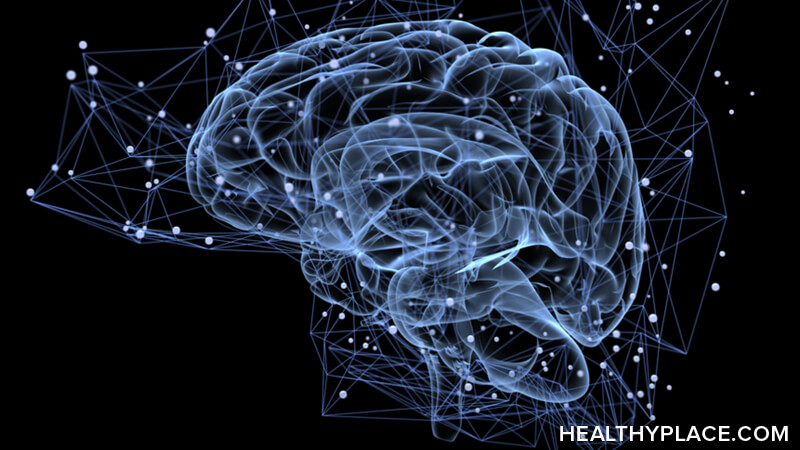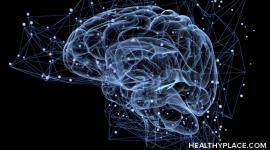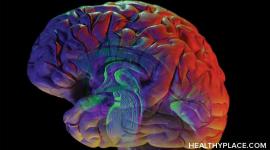What Are the Causes of Schizophrenia?

If you or a loved one has schizophrenia, it’s natural to wonder why. Where did this come from? Why me? Why my loved one? What are the causes of schizophrenia?
Doctors and researchers, too, want to know why. They’re working hard to discover the answer to get to the root of this serious mental illness. The more they understand about what causes schizophrenia, the better they can help the people living with it.
What We Know About the Causes of Schizophrenia
Currently, there is no known cause of this disorder. There are, however, schizophrenia risk factors that are known to at least partially contribute to it. Schizophrenia is a complex illness with multiple risk factors that work together to contribute to it. We also know that schizophrenia is no one’s fault.
Researchers have developed many theories about what might cause someone to develop the illness. Because schizophrenia is an illness of the brain, the theories about causes relate to the workings of the brain or outside factors that directly impact the brain. The theories encompass multiple areas:
- Biology/genetics
- Neurology
- Cognition
- Environment/stress
- Virus/immunopathology
- Pregnancy and birth complications
- Substance use
The Possible Causes and Risk Factors of Schizophrenia
The above list organizes the various theories into categories. Let’s look at what each category adds to our understanding of schizophrenia.
Biological and Genetic Causes of Schizophrenia
The biological causes of schizophrenia have a great deal to do with genetics. Having a parent with schizophrenia increases one’s risk of developing the illness from 1% to 10%, and having an identical twin with the disorder increases someone’s risk to approximately 50% (Silverstein, Spaulding, & Menditto, 2006).
Scientists have even located specific genes and chromosomal sites that are linked to schizophrenia. It appears that the involved genes increase the plasticity of the brain (its ability to change). The brain in schizophrenia is more susceptible to and influenced by the environment.
Neurology
Neurology is the study of the nervous system and it’s functioning. Neurologists are studying the function of the brain in schizophrenia and have observed that in schizophrenia, there are problems with the way the brain communicates with itself.
Imbalanced connections between circuits in the brain lead to the symptoms of schizophrenia. The brains of people with schizophrenia show imbalances with neurotransmitters (messengers) serotonin and GABA, but the two most problematic neurotransmitters in this illness are glutamate and dopamine. Dopamine is so strongly correlated with schizophrenia that this potential cause is called the dopamine hypothesis.
Other neurological deficits involve connectivity issues and problems with interactions between brain regions. Additionally, brain tissue itself, especially glial cells, demonstrates abnormalities that may be a cause.
Cognition
Cognition involves how we process input to the brain. It involves thinking, memory, using contextual and sensory input to interpret and organize information, and the ability to conceptualize time and spatial relationships.
Schizophrenia involves significant difficulties with cognition and contextual processing, and researchers have identified problems in the areas of the brain responsible for cognition.
Environmental / Stress Causes of Schizophrenia
The stress-vulnerability model asserts that environmental stress is a cause of schizophrenia. The factors include:
- Neglect, trauma, and abuse in childhood
- Urban upbringing (scientists can’t yet explain why this is a risk factor)
- Moving to a new country with little connection to new or original culture
- Chronic, severe stress
It appears that when people have protective factors that support them during extreme stress, they fare much better. Without protective factors and with multiple risk factors involved, the chances of developing schizophrenia are higher.
Virus/immunopathology
Another theory about the cause of schizophrenia is that viruses and the immune system are involved. It’s known that viruses can negatively impact the brain and mental health, but no connection has been found to link viruses to schizophrenia. Researchers continue to explore this hypothesis.
Pregnancy and Birth Complications
This controversial theory about the cause of schizophrenia has not been directly proven. It has been suggested that certain conditions contribute to the later development of schizophrenia:
- Lack of oxygen during pregnancy or birth
- High maternal stress
- Mother’s exposure to influenza virus during pregnancy
- Maternal malnutrition and/or smoking
- Higher age of the father
- Abnormal fetal development (such as low birth weight)
This theory isn’t meant to put blame a mother. It’s being studied as part of a search for answers.
Substance Use
While the effects of substance use can mimic the symptoms of schizophrenia, it doesn’t appear that substance use causes schizophrenia (Drug Induced Schizophrenia? Is It Possible?). The exception is cannabis. There is a strong correlation between cannabis use and the development of schizophrenia in adolescents who have biological/genetic risk factors (Schizophrenia and Weed: Is Cannabis Helpful or Hurtful?).
Schizophrenia is different for everyone, which makes it hard to determine cause and treatment. It’s known, though, that schizophrenia has multiple risk factors that act together to cause faulty signals and connections in the brain.
The more we know about the causes, the better we can treat this serious mental illness.
APA Reference
Peterson, T.
(2021, December 29). What Are the Causes of Schizophrenia?, HealthyPlace. Retrieved
on 2026, January 14 from https://www.healthyplace.com/thought-disorders/schizophrenia-causes/what-are-the-causes-of-schizophrenia


